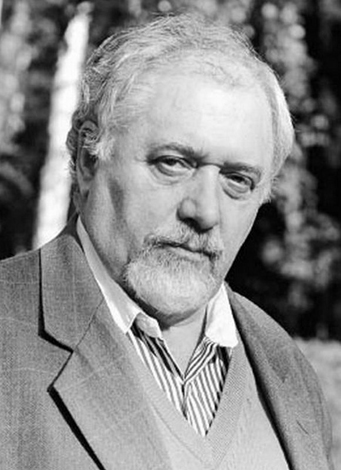Hluzman, Semen
Hluzman, Semen [Глузман, Семен], b 30 September 1946 in Kyiv. Psychiatrist, political dissident, social and human rights activist, poet, and journalist/commentator. Born into a family of medical doctors, Hluzman completed his studies at the Kyiv Medical Institute (specializing in psychiatry) in 1970, and in 1970–71 he worked as a psychiatrist in Zhytomyr oblast. At this time Hluzman became interested in and concerned about the abuse of psychiatry for political purposes in the USSR. He asked his friend Leonid Pliushch to contact the relatives of Petro Hryhorenko (Petro Grigorenko), then forcibly detained in a special psychiatric hospital, so that he could learn more about his case. Hryhorenko’s defense lawyer, Sofiia Kalistratova—one of the few Soviet lawyers who was genuinely committed to the uncompromising defense of dissident defendants—managed, with great difficulty, to make copies of the psychiatric reports prepared by the doctors officially assigned to evaluate Hryhorenko. She also collected a variety of other documents relevant to his case. Using Andrei Sakharov and Leonid Pliushch as intermediaries, Kalistratova passed these documents on to Hluzman, who gathered additional materials and testimonies about Hryhorenko and simultaneously engaged in a study of the Soviet legal literature dealing with forensic psychiatry. Hluzman’s research culminated in the preparation of an independent in absentia psychiatric report with a conclusion that Hryhorenko was of sound mind and is mentally healthy and that he had been committed to undergo psychiatric treatment solely because of his political views and activities. This report was disseminated as a samvydav document and thus, Hluzman became, at the age of 25, the first psychiatrist in the Soviet Union to expose the Soviet abuse of psychiatry for political purposes.
Hluzman was arrested on 11 May 1972. He was formally charged with circulating samvydav materials, but the main reason for his arrest was the above-mentioned report on Petro Grigorenko. At the conclusion of his trial (12–19 October 1972), the Kyiv oblast court sentenced Hluzman, in accordance with Article 62-1 of the Criminal Code of the Ukrainian SSR, to 7 years’ imprisonment in severe-regime labor camps and 3 years’ exile. While imprisoned Hluzman participated in a wide range of camp protests, including hunger strikes, for which he was frequently punished. He was active in preparing regular reports about conditions in Perm camp VS389/35, where he was imprisoned with many other dissidents, and in arranging for these reports to reach dissident circles in Moscow. While imprisoned Hluzman also wrote, with Vladimir Bukovsky, ‘A Manual on Psychiatry for Dissidents’ dedicated to Leonid Pliushch. This document, after it was smuggled abroad and published in several languages, played a major role in bringing international attention to the detention of Soviet dissidents in special psychiatric hospitals.
Beginning in May 1979 Hluzman served his term of exile in Tiumen oblast, RSFSR. After he returned to Kyiv in 1982 he initially worked as a blue collar worker, but from 1983 onwards he was permitted to work as a pediatrician. During the perestroika period under General Secretary of the CPSU Mikhail Gorbachev, Hluzman began to vigorously pursue a variety of projects focusing on reforms in the fields of medicine and human rights, and he was the author of a brief book, On Soviet Totalitarian Psychiatry, published in 1989 by the International Association on the Political Use of Psychiatry.
Hluzman’s main accomplishment after the 1991 Ukraine’s Declaration of Independence was founding, in 1991, the Ukrainian Psychiatric Association and serving as its executive secretary and later its president. Its aims included promoting reform of mental health care and helping in the preparation of new legislation in this sphere, establishing a specialized library of literature in the field of psychiatry, translating and publishing various works on psychiatry and social welfare issues, investigating the grievances of citizens regarding their treatment by the mental health care system, etc. Hluzman had less success with his initiatives in the sphere of human rights. From 1993 onwards he served as the executive director of the Ukrainian-American Bureau for the Protection of Human Rights, but this organization eventually ceased to function effectively because Hluzman’s associates found it increasingly difficult to work with him.
Hluzman has published several articles in the field of psychiatry, and his memoirs were published under the title Risunki po pamiati, ili vospominaniia otsidenta (Drawings from Memory, or Memoirs of an Inmate, 2012). Hluzman was the co-author (with Zinovii Antoniuk and Myroslav Marynovych) of the collection of articles Lysty z voli (Letters from Freedom, 1999), and a book of his poetry, Psalmy i skorbi (Psalms and Sorrows) was published in 1994. Hluzman frequently contributes commentaries on a wide range of issues to various newsmagazines and websites in Ukraine. In particular, he is a harsh and relentless critic of the slow pace and ineffectiveness of reforms in Ukraine, especially in the field of health care.
Ivan Jaworsky
[This article was written in 2021.]
.jpg)
